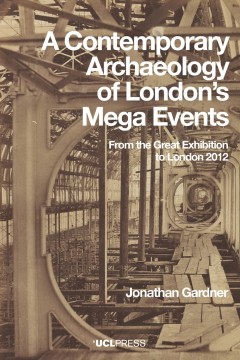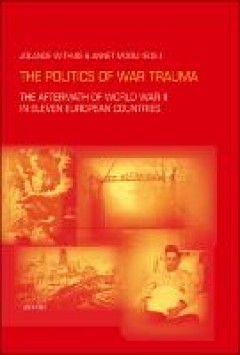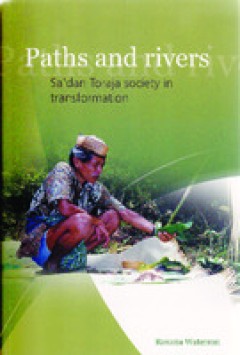Filter by
# Debug Box
/var/www/htdocs/pustaka-digital/lib/SearchEngine/SearchBiblioEngine.php:688 "Search Engine Debug 🔎 🪲"
Engine Type ⚙️: "SLiMS\SearchEngine\SearchBiblioEngine"
SQL ⚙️: array:2 [ "count" => "select count(sb.biblio_id) from search_biblio as sb where sb.opac_hide=0 and (sb.call_number LIKE :callnumber)" "query" => "select sb.biblio_id, sb.title, sb.author, sb.topic, sb.image, sb.isbn_issn, sb.publisher, sb.publish_place, sb.publish_year, sb.labels, sb.input_date, sb.edition, sb.collation, sb.series_title, sb.call_number from search_biblio as sb where sb.opac_hide=0 and (sb.call_number LIKE :callnumber) order by sb.last_update desc limit 10 offset 70" ]
Bind Value ⚒️: array:1 [ ":callnumber" => "9%" ]

Rome: An Empire of Many Nations New Perspectives on Ethnic Diversity and Cul…
The center of gravity in Roman studies has shifted far from the upper echelons of government and administration in Rome or the Emperor's court to the provinces and the individual. The multi-disciplinary studies presented in this volume reflect the turn in Roman history to the identities of ethnic groups and even single individuals who lived in Rome's vast multinational empire. The purpose is le…
- Edition
- -
- ISBN/ISSN
- 9781009256193
- Collation
- xii, 428 p ; ill
- Series Title
- -
- Call Number
- 937.06 ROM J

CONTEMPORARY ARCHAEOLOGY OF LONDONS MEGA EVENTS : from the great exhibition t…
A Contemporary Archaeology of London’s Mega Events explores the traces of London’s most significant modern ‘mega events’. Though only open for a few weeks or months, mega events permanently and disruptively reshape their host cities and societies: they demolish and rebuild whole districts, they draw in materials and participants from around the globe and their organisers self-consciousl…
- Edition
- -
- ISBN/ISSN
- 9781787358447
- Collation
- xiii, 279 p. ill;
- Series Title
- -
- Call Number
- 942.100909 CON J

Spatial histories of occupation : colonialism, conquest and foreign control i…
This open access book explores how different spatial geographies emerged, adapted or were transformed in various occupied and colonial settings around Asia, showing how the experiences of those living under occupation shaped and was shaped by new interpretations and typologies of ‘space’. With case studies across South, Southeast and East Asia and through a variety of disciplinary perspecti…
- Edition
- 4
- ISBN/ISSN
- 9781350252622
- Collation
- xii, 264p.
- Series Title
- -
- Call Number
- 950.4 SPA b

Antarcticness : inspirations and imaginaries
Antarcticness joins disciplines, communication approaches and ideas to explore meanings and depictions of Antarctica. Personal and professional words in poetry and prose, plus images, present and represent Antarctica, as presumed and as imagined, alongside what is experienced around the continent and by those watching from afar. These understandings explain how the Antarctic is viewed and manag…
- Edition
- -
- ISBN/ISSN
- 9781800081444
- Collation
- xxxviii, 289 p. ill;
- Series Title
- -
- Call Number
- 998 ANT I

Arcticness : power and voice from the North
Climate change and globalisation are opening up the Arctic for exploitation by the world – or so we are told. But what about the views, interests and needs of the peoples who live in the region? This volume explores the opportunities and limitations in engaging with the Arctic under change, and the Arctic peoples experiencing the changes, socially and physically. With essays by both academic…
- Edition
- -
- ISBN/ISSN
- 9781787350137
- Collation
- xv, 204 p. ill;
- Series Title
- -
- Call Number
- 998 ARC I

Ancient knowledge networks : a social geography of cuneiform scholarship in f…
Ancient Knowledge Networks is a book about how knowledge travels, in minds and bodies as well as in writings. It explores the forms knowledge takes and the meanings it accrues, and how these meanings are shaped by the peoples who use it. Addressing the relationships between political power, family ties, religious commitments and literate scholarship in the ancient Middle East of the first mill…
- Edition
- -
- ISBN/ISSN
- 9781787355941
- Collation
- xxiii, 303 p. ill;
- Series Title
- -
- Call Number
- 935 ANC E

CREATING THE CAPE COLONY : the political economy of settler colonisation
This open access book offers a detailed study of the foundation and expansion of the Dutch Cape Colony to ask why certain regions in the global south became European settler societies from the 16th century onwards. Examining the different factors that led to the creation of the Cape Colony, Erik Green reveals it was a gradual process, made up of ad hoc decisions, in which the agency of indigeno…
- Edition
- 4
- ISBN/ISSN
- 9781350258259
- Collation
- viii, 192p.
- Series Title
- -
- Call Number
- 916.8044 CRE g

YOUTH AND MEMORY IN EUROPE : defining the past, shaping the future
What kind of historical narratives are young people exposed to and what do they make of them? This volume brings together humanities and social sciences scholars in a study of youth and memory in different European regions. It explores the connections between the historical narratives expressed by young people and the broader, multifaceted historical narratives mediated by their cultures.
- Edition
- 6
- ISBN/ISSN
- 9783110733501
- Collation
- xv, 390p.
- Series Title
- -
- Call Number
- 940.072 YOU k

The politics of war trauma : the aftermath of world war II in eleven european…
In 1945 moest Europa in het reine zien te komen met de verwoestende gevolgen van de oorlog. Miljoenen hadden het leven gelaten. Anderen waren ziek, uitgehongerd of getraumatiseerd door hun kamp- of onderduikervaringen, of door belevenissen in gevechten en bombardementen. Vandaag zouden we die slachtoffers tegemoet treden met een legertje traumapsychologen, maar in 1945 was het begrip posttrauma…
- Edition
- edision 22
- ISBN/ISSN
- 9789052603711
- Collation
- xi. :380 p.
- Series Title
- -
- Call Number
- 940.5 THE j

Paths and rivers : Sa'dan Toraja society in transformation
Fieldwork extending over a thirty-year period provided materials for this book. Paths and Rivers offers an unusually deep and broad picture of the Sa’dan Toraja as a society in dynamic transition over the course of the past century. The Toraja inhabit the mountainous highlands of South Sulawesi, Indonesia, and are well known for their dramatic architecture, their unusual cliff burials, and th…
- Edition
- 27
- ISBN/ISSN
- 9789004253858
- Collation
- xxi, 510p.; ill.
- Series Title
- -
- Call Number
- 959.55 PAT w
 Computer Science, Information & General Works
Computer Science, Information & General Works  Philosophy & Psychology
Philosophy & Psychology  Religion
Religion  Social Sciences
Social Sciences  Language
Language  Pure Science
Pure Science  Applied Sciences
Applied Sciences  Art & Recreation
Art & Recreation  Literature
Literature  History & Geography
History & Geography